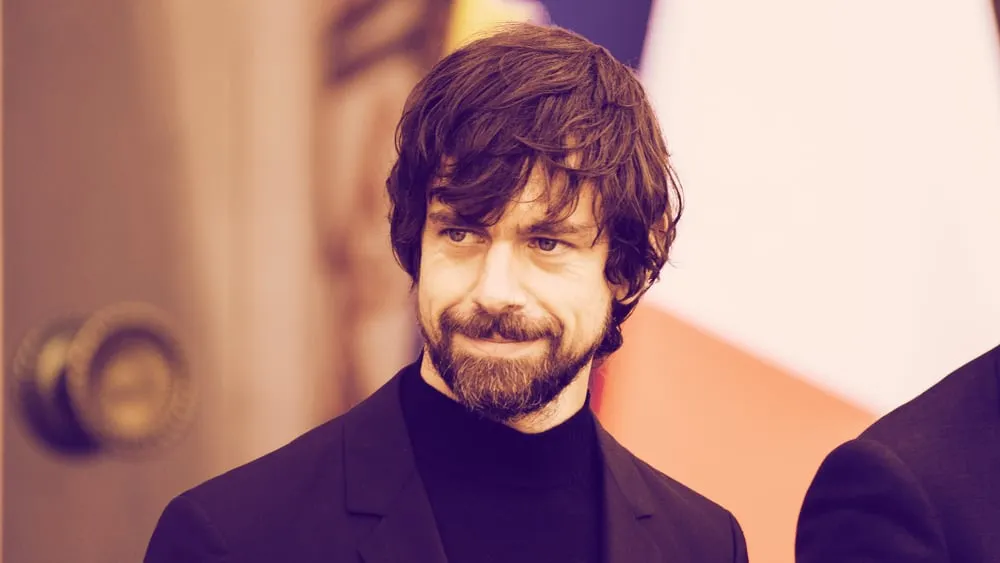In brief
- Twitter's co-founder is not backing down in his war with Web3 evangelists at Andreessen Horowitz.
- The fight between Dorsey and Andreessen suggests a deepening schism between Bitcoin believers and Web3.
There they go again. On the heels of a delicious Twitter spat involving prominent crypto personalities such as Elon Musk, the person who started the fight—Twitter founder and Square CEO Jack Dorsey—renewed hostilities with a new tweet mocking Web3.
If you missed the earlier brouhaha, it involved Dorsey and his supporters (including Musk) claiming that Web3 is not a decentralized dream like its evangelists claim, but is instead a hustle controlled by venture capitalists. One of those evangelists is Marc Andreessen, co-founder of the VC firm Andreessen Horowitz, which is the biggest investor in Web3 and its loudest advocate.
Marc Andreessen, apparently none too pleased with Dorsey's view of crypto's future, took the step of blocking him on Twitter—a move that bars Dorsey from easily seeing Andreessen's tweets or communicating with him on the platform. Dorsey did not appear chastened, however, and used Andreessen's decision to get in a further dig at Web3:
I’m officially banned from web3 pic.twitter.com/RrEIAuqE6f
— jack⚡️ (@jack) December 22, 2021
Dorsey wasn't done. He took an extra few characters to share his misgivings with Andreessen's mission:
this mission statement has always felt so…dark pic.twitter.com/82hFvTd7fO
— jack⚡️ (@jack) December 22, 2021
It must have come as a slap in the face to Dorsey: In 2011, Andreessen Horowitz reportedly bought $80 million worth of Twitter stock in secondary markets.
Then again, Andreessen himself was likely piqued by an earlier tweet, in which Dorsey doubled-down on his position that Web3 is in an empty promise. He shared a cartoon that shows venture capitalists gobbling all of its all resources and leaving ordinary investors with just a trickle:
— jack⚡️ (@jack) December 21, 2021
Dorsey also appears to have responded to Andreessen's blocking him with a rash of related unfollows: According to @BigTechAlert, an account that Twitters the activities of tech executives, Dorsey has unfollowed Andreessen and other prominent crypto personalities, including Gemini co-founder Tyler Winklevoss and Coinbase CEO Brian Armstrong.
The act of unfollowing someone on Twitter is not as severe as blocking them but, in this context, Dorsey appears to be serving a deliberate diss at Andreessen Horowitz and its allies.
Twitter spats among wealthy Silicon Valley executives are not uncommon. But in this case, the dust-up is newsworthy in part because Twitter is by far the most important communications platform for the crypto industry—it's where everyone in crypto gets their news, and is also where trends and ideas get formed.
In this context, the beef between Dorsey and Andreessen Horowitz also signifies an intellectual schism among leading crypto figures. And while Dorsey's tweets served as a refreshing challenge to the groupthink that often pervades Web3 discussions, they also reflect his self-interest.
Dorsey is known in the crypto world as a Bitcoin maximalist—prizing the original cryptocurrency over Ethereum and the growing number of other blockchains that have gained traction in recent years. At Twitter, where he served as CEO until last month, Dorsey pushed a payments and NFT strategy that revolved around Bitcoin—a decision some regarded as curious given how the Bitcoin blockchain is currently much less versatile than those for Ethereum and Solana.
And while there has long been a faction of Bitcoin maximalists, they have not until now had a champion with the stature of Dorsey, who is an A-list Silicon Valley figure and the founder and CEO of the public payments company square.
In a further sign that the crypto world is fracturing, the CEO of Bitcoin payments company Strike tweeted this week that Chris Dixon, the intellectual leader of Web3 at Andreessen Horowitz, had blocked him.
Same 🙁
Guess it’s back to work on #Bitcoin 🤝 pic.twitter.com/j956TuOE2R
— Jack Mallers (@jackmallers) December 22, 2021
It should be noted that executives at the venture capital firm have become thin-skinned towards critics in recent years.
As for Dorsey, his antipathy towards Web3 may be rooted not only in a love of Bitcoin but a fear that a new world of decentralized, blockchain-based applications could threaten the two companies he founded, Square and Twitter. This is perhaps reflected in Dorsey's recent snipes against David Sacks, another pro-Web3 venture capitalist who has criticized Twitter's centralized ability to boot people from its platform.
I wouldn’t worry too much…seems it’s only against you.
— jack⚡️ (@jack) December 22, 2021
All of this, of course, may blow over in coming weeks, especially as Silicon Valley is a clubby place where a common love of money eventually smooths over any hard feelings. But it is also possible that the Dorsey-Andreessen brawl will deepen the schism between Bitcoin purists and Web3 evangelists—a schism that could shape the crypto landscape for years to come.

